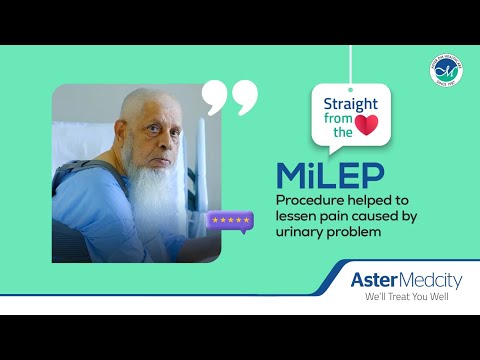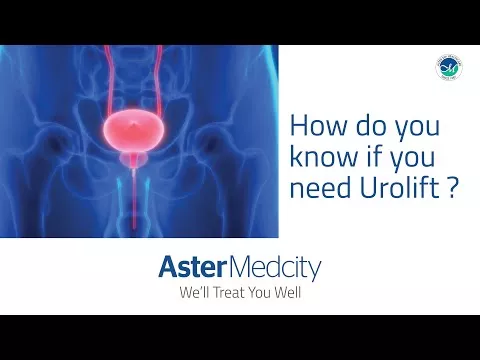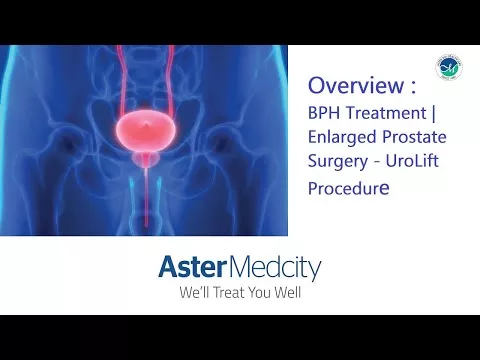What is UroLift Procedure?
UroLift is a daycare, minimally invasive surgical procedure used to treat benign prostatic hyperplasia (BPH), which is a non-cancerous enlargement of the prostate gland that can cause urinary symptoms such as difficulty urinating, weak urine flow, and frequent urination.
During the UroLift procedure, small implants are inserted into the prostate to lift and hold the enlarged prostate tissue out of the way, thereby opening up the urethra and improving urine flow. This is done using a small telescope-like device that is inserted into the urethra, and the implants are delivered through the device using small needles.
The UroLift procedure is typically performed under local anaesthesia and does not require any incisions or removal of prostate tissue. Patients usually experience rapid symptom relief and can resume normal activities soon after the procedure.
Why and when it is recommended?
The UroLift procedure is generally recommended for men with mild to moderate BPH who have not responded well to medication and want to avoid more invasive surgical options. It may not be appropriate for men with severe BPH, a very large prostate gland, or other medical conditions that could affect the safety or effectiveness of the procedure. A urologist can evaluate a patient's individual situation and recommend whether the UroLift procedure is appropriate for them.
Risks associated with UroLift Procedure?
The fact that UroLift has significantly fewer risks and adverse effects than other BPH procedures is one of its most persuasive advantages. In actuality, UroLift is the sole BPH treatment of its sort that has no risk of erectile or ejaculatory issues. If adverse effects do arise, they typically subside within 2 to 4 weeks and are minimal. Following UroLift, potential side effects could include:
- Burning with urination
- Painful urination
- Hematuria (blood in the urine)
- Urgency incontinence
- Lower abdominal/pelvic pain.
What happens after the treatment, during the recovery period?
After undergoing the UroLift System operation, the majority of patients do not need a catheter. Patients might expect little recovery time after these treatments, and they may start feeling better within two weeks.
Our Doctors
We have some of the best specialists from around the world, they bring years of experience and offer evidence-based treatment to ensure the best care for you.
Patient Stories
Our patients are our best advocates, hear the inspiring stories of their treatment journey
Blogs
The source of trustworthy health and medical information. Through this section, we provide research-based health information, and all that is happening in Aster Hospital.








